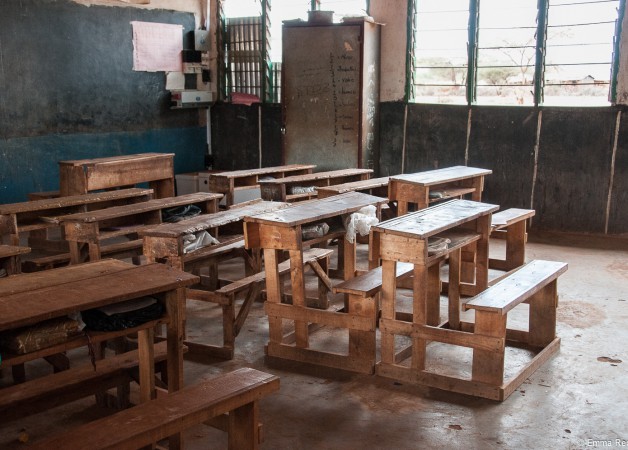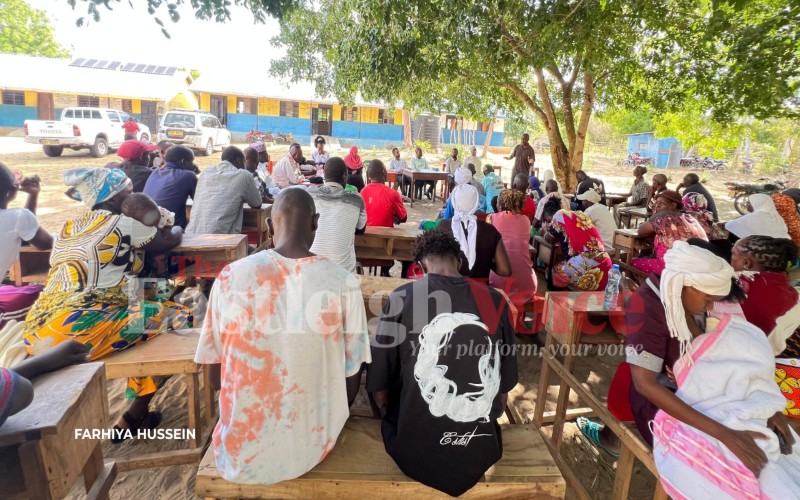Court allows DCI to exhume body of teen Gaala Aden, who refused to marry old man in Wajir

A postmortem conducted on Gaala’s body showed 100 per cent burns, confirming that an open flame was used in the crime.
The Directorate of Criminal Investigations (DCI) has received a court approval to exhume the body of Gaala Aden Abdi, a 17-year-old girl who was burnt to death after refusing to marry a 55-year-old man in Wajir County.
The exhumation aims to conduct a repeat post-mortem and obtain toxicology and DNA samples to help determine the exact cause of death.
More To Read
- Gender and Equality Commission launches study to improve girls' education in marginalised regions
- Equality Commission condemns Geoffrey Mosiria for 'exploiting vulnerable street child', calls for action
- Body of 17-year-old refugee girl killed after refusing forced marriage to be exhumed Friday for autopsy in murder case
- Commission demands exhumation of Gaala Abdi to aid murder probe
- Court grants police 14 days to hold suspects in Gaala Aden’s murder case
- Women struggle for a better future amid economic hardships
The Magistrate Court directed the Sub-County Criminal Investigation Officer (SCCIO) of Wajir West to supervise the exhumation, with Dagahaley Police Station providing security during the process.
The court further instructed that DNA sampling be carried out at the gravesite or another location, as advised by the government pathologist.
Gaala’s death occurred after she rejected a forced marriage to a 55-year-old man.
She had been transported from the Dagahaley Refugee Camp to Wara in Habaswein, a remote village 150 kilometres away, where she was to meet the man for the first time.
Despite pressure from the man’s relatives, Gaala refused to go through with the marriage, which reportedly led to her tragic death. In the days before her death, Gaala allegedly made a call revealing plans for her murder and naming those responsible.
She was buried on March 22 at Dagahaley Refugee Camp in Dadaab, Wajir County.
A postmortem conducted on Gaala’s body showed 100 per cent burns, confirming that an open flame was used in the crime.
Her death triggered national outrage, with many Kenyans and human rights groups demanding justice and an end to the culture of silence surrounding gender-based violence.
The National Gender and Equality Commission (NGEC) had in particular called for the exhumation of Gaala’s body, arguing that the investigation into her brutal murder could not proceed effectively without conducting a postmortem.
The NGEC noted that her burial was carried out hastily, compromising the integrity of the investigation and hindering the collection of crucial evidence.
NGEC Chairperson Rehema Jaldesa emphasised that the community, along with the local chief, had rushed to shift the narrative from murder to suicide.
She expressed concern that this was an attempt to conceal evidence of the crime.
“I went to Wajir, and the first thing I noticed was that the community, including the local chief, quickly shifted the narrative from murder to suicide, which was extremely unfortunate because there were so many community members who were present when the girl was beaten by three men—the husband and his two brothers. They hit her, according to the witness, and killed her,” Jaldesa said during a presentation to the Gender-Based Violence (GBV) Technical Working Group.
“To cover up the crime, they set her body on fire and made small cuts on the husband’s hand and waist to create the illusion that she had attacked him. The narrative they pushed was that when she saw the man was bleeding, she set herself on fire.”
Jaldesa said a postmortem was crucial for prosecuting the suspects.
“Without a postmortem, there is no evidence to prosecute. I am appealing to the Directorate of Criminal Investigations (DCI) to exhume the body so we can determine the cause of death,” she added.
Top Stories Today












































